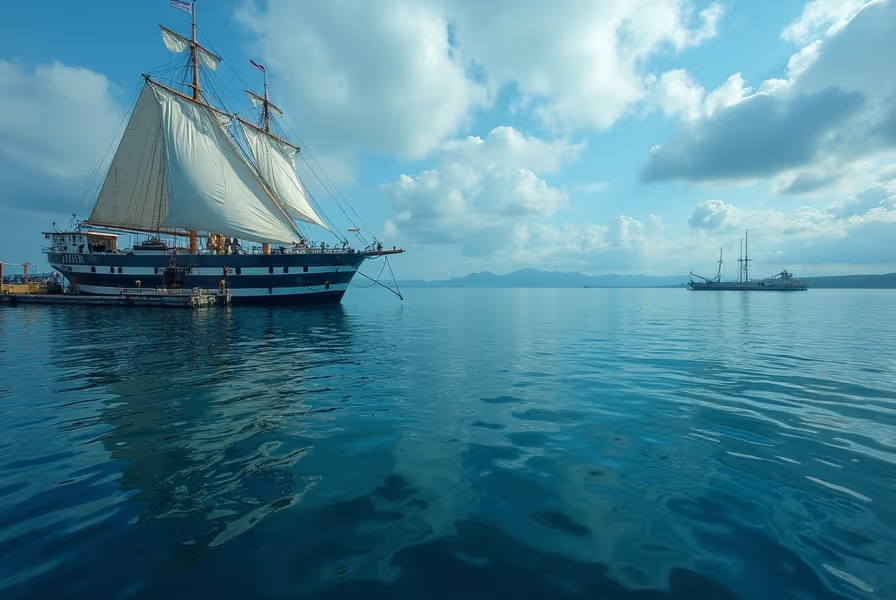Top U.S. Schools for Marine Sciences and Oceanography Studies
Choosing the right college for marine biology can have a huge impact on your academic and career journey. Whether you're passionate about ocean conservation, marine ecosystems, or aquatic animal research, the United States offers several top-rated universities with strong marine science programs. These schools provide access to coastal research centers, fieldwork opportunities, and state-of-the-art labs. Here's a detailed guide to the best colleges for marine biology in the U.S. to help you make an informed decision.
What to Look for in a Marine Biology College
Finding the right marine biology program depends on your career goals and preferred learning style. Here are some key features to consider when evaluating marine science colleges:
- Access to coastal or marine ecosystems for field research
- Well-equipped oceanography and marine labs
- Faculty who are active researchers in marine biology and ocean sciences
- Internship and study-abroad opportunities related to marine ecosystems
- Strong undergraduate and graduate degree programs in marine science
Top Marine Biology Colleges in the United States
These universities are known for leading research, hands-on training, and academic excellence in marine biology and oceanography.
1. University of California, San Diego (UCSD) – Scripps Institution of Oceanography
Located on the Pacific coast in La Jolla, California, UC San Diego is home to the world-renowned Scripps Institution of Oceanography. This school offers both undergraduate and graduate degrees in oceanic and atmospheric sciences.
- Degree paths: B.S. in Marine Biology, Ph.D. in Oceanography
- Research facilities: Over 25 oceanographic research vessels and a public aquarium
- Location: Access to Pacific Ocean ecosystems and diverse marine habitats
2. University of Miami – Rosenstiel School of Marine, Atmospheric, and Earth Science
The Rosenstiel School is one of the leading oceanographic institutions in the U.S. It offers extensive opportunities for fieldwork and ocean research in subtropical waters.
- Degree paths: B.S., M.S., and Ph.D. in Marine Biology and Ecology
- Location: Situated on Virginia Key, close to coral reefs and marine sanctuaries
- Experience: On-campus research labs, boat access, and diving programs
3. University of Washington – School of Aquatic and Fishery Sciences
This Seattle-based university focuses on the science of aquatic systems, including fisheries biology and marine ecology. Students benefit from proximity to Puget Sound and the Pacific Ocean.
- Degree paths: B.S. in Aquatic and Fishery Sciences, M.S. and Ph.D. options
- Strengths: Interdisciplinary approach linking biology, oceanography, and conservation
- Special Programs: Research with NOAA and internships with state agencies
4. College of Charleston – Grice Marine Lab
If you're looking for a more intimate college experience along with hands-on learning, the College of Charleston in South Carolina might be a great fit.
- Degree paths: B.S. in Marine Biology, M.S. in Environmental Studies
- Marine Lab: Located on Charleston Harbor for direct access to Atlantic marine life
- Career focus: Strong emphasis on undergraduate research and internships
5. University of Hawaii at Manoa – School of Ocean and Earth Science and Technology (SOEST)
This school offers unparalleled access to tropical marine ecosystems, coral reefs, and volcanic island environments for marine science students.
- Degree paths: B.S. and M.S. in Marine Biology, Oceanography degrees available
- Research Centers: Includes the Hawaii Institute of Marine Biology (HIMB)
- Study setting: Located on Coconut Island in Kaneohe Bay
6. Boston University – Marine Program (BUMP)
Boston University's BUMP is an intensive program combining lab work, field study, and research. Though based in an urban area, the program has partnerships for study in coastal regions.
- Specialty: B.A. in Marine Science with field courses in Belize, Massachusetts Bay
- Support: Faculty advising and small class sizes
- Facilities: Marine lab at the New England Aquarium and other partner sites
7. Texas A&M University – Department of Oceanography and Marine Biology at Galveston Campus
Located on the Gulf Coast, Texas A&M University at Galveston offers programs fully focused on ocean and coastal studies. It features one of the few maritime-focused campuses in the country.
- Degree Paths: B.S. and M.S. in Marine Biology, Marine Fisheries, Marine Environmental Law
- Access: Gulf of Mexico fieldwork and dedicated aquatic research centers
- Benefit: Lower tuition rates for residents and strong military/maritime connection
Frequently Asked Questions About Marine Biology Colleges
Which major is best for a career in marine biology?
The best major for a marine biology career is typically a Bachelor of Science in Marine Biology, Oceanography, or Environmental Science. These degrees offer coursework in marine ecology, ocean systems, and aquatic life sciences. Look for programs with strong fieldwork and lab components.
Is a marine biology degree worth it?
Yes, a marine biology degree is worth it if you're passionate about ocean science and conservation. It opens doors to careers in research, environmental consultancy, wildlife conservation, and governmental agencies. Complementing your degree with internships and research experience boosts your job prospects.
Which state is best to study marine biology?
States like California, Florida, Washington, and Hawaii offer the best environments to study marine biology. These states have access to coastlines, marine research labs, and diverse ecosystems like coral reefs, kelp forests, and tidal zones.
How much do marine biologists make in the U.S.?
According to the U.S. Bureau of Labor Statistics, marine biologists and zoologists earn a median salary of around $66,350 annually. Salaries vary by experience, location, and job type. Researchers and federal employees may earn over $100,000 per year. Here are more details.
What colleges have marine biology programs with high employment rates?
Universities with strong job placement and alumni networks in marine biology include UC San Diego, University of Miami, and University of Washington. These schools have strong ties to marine labs, government agencies, and research institutions helping graduates find employment quickly.










.svg)



